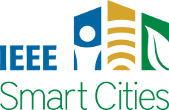Recommended Practice for Implementation of P7010 in ESG/SDG Actions and in Advancing Corporate Social Responsibility
Written by Deborah Hagar
This is an initial report on the exciting work that has begun with the P7010.1 Working Group that features Recommended Practices for Environmental Social Governance (ESG) and Social Development Goal (SDG) Action Implementation and Advancing Corporate Social Responsibility (CSR).
This unique Working Group (WG) is designed to build on the Framework and Standard created by P7010-2020; thus, 7010.1 will serve as a Recommended Practice to implement and ensure the P7010-2020 goals are achieved, so that implementation practices for various smart cities services can be properly realized with appropriate standards compliance. The primary work is to evaluate the application of the P7010-2020 Standard as a framework, and to provide guidance (Recommended Practice) for the implementation of procedures and actions that enable organizations to align their procedures and process to meet the goals of ESG/SDG and CSR, and further align with organization priorities.
These new organizational measures represent new challenges in transparent reporting of goals and targets and accountability for actions and results beyond their own internal environment to include their partners throughout their supply chains. It further measures and establishes responsibility for overall resource management and how organizations impact the communities and stakeholders they serve, resulting in new ecosystems designed to add value and advance prosperity for all stakeholders. The new corporate currency is knowledge – humans, augmented by technology.
The WG formed in February and has finished the initial assessment of the P7010-2020 Standard Practice. The WG unanimously endorsed the P7010-2020 as providing a reliable Standard with framework, including taxonomy, for assessing organizations against ethical standards. The WG is in the final stage of completing the assessment of organization practices as to level of advancement in ESG and CSR actions. The preliminary assessment is that organizations have the following issues, in both structure and culture:
- Organization members do not know what they need to know
- Do not have competence, capacity, and capability to initiate actions to achieve goals
- Organizations have set goals, but the ESG/SDG and CSR goals are not top priority
- Existing processes and procedures and Inefficient/ineffective to support the goals and to further transform organizations to meet these new higher-level goals.
The importance of this assessment is to enable the WG to now focus on and prioritize the Recommended Practices required to provide organizations with the capacity and capability to fully implement P7010-2020 in “assisting” and “adapting” the organization's processes and procedures to align with the desired goals. This will provide valuable next steps for organizations and identify the physical building blocks, economic/societal adjustments, and commitment/enabling mechanisms to establish the structure to support these goals. This component will specifically review the existing role, potential, and opportunities for wider use of technology in the monitoring and ensuring standardized compliance with the stipulated goals. It will further integrate the role of data/information in data-driven decision-making to support the execution and alignment of processes across domains, and utilize the expanded capabilities provided by AI and human intelligence.
Our outline for P7010.1 will be completed in July and the drafting of Recommended Practice will commence presenting drafts in June of 2023. In addition to the contribution of identification of expanded capacity and capability, through the wider use of technology, the WG has identified critical areas for further research to include trans-disciplinary engineering and a new dimension for organizations with Corporate Digital Responsibility. It will also explore greater use of Machine Learning (ML), Artificial Intelligence (AI), and other relevant technologies in enhanced use and decision-making within organizations, demonstrating the value of human/technology knowledge.
Upon publication of P7010.1, this Recommended Practice will set a model for moving IEEE Standards forward to guide implementation and enhanced performance as a result. The ability to bring together multiple perspectives and procedures for cross-domain collaboration will also enable P7010.1 WG to explore extended collaborations with member Committees (i.e., SSIT, SMC), in new value-added implementation practices for specialized applications (i.e., Smart Cities), and further demonstration of wider technology use and value.
This article was edited by Bernard Fong
To view all articles in this issue, please go to June 2022 eNewsletter. For a downloadable copy, please visit the IEEE Smart Cities Resource Center.

To have the eNewsletter delivered monthly to your inbox, join the IEEE Smart Cities Community.
Past Issues
To view archived articles, and issues, which deliver rich insight into the forces shaping the future of the smart cities. Older eNewsletter can be found here. To download full issues, visit the publications section of the IEEE Smart Cities Resource Center.



